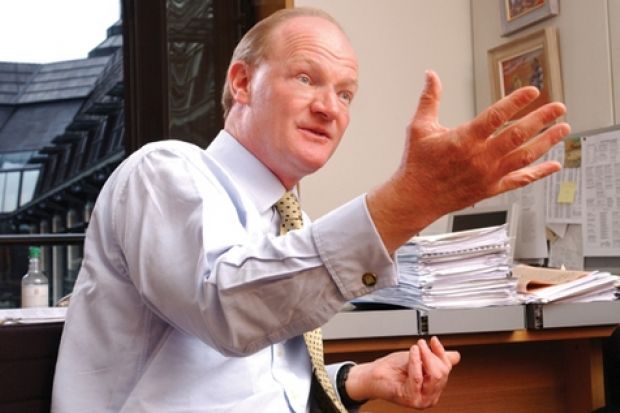Ministers chose to use terms such as "fees" and "loans" in the public relations campaign for the new student finance arrangements despite the terms being "very misleading" because advertising experts warned that they would look like "shifty politicians" if they did not.
That was the explanation offered by David Willetts, the universities and science minister, who said during a debate at the start of Universities Week on 13 June that the government and the sector were "trapped" in language that did not describe the financial reality.
Mr Willetts said that although the system of income-contingent loans repaid by graduates bore little resemblance to credit-card debt, advertising agencies had warned the coalition against avoiding language that had become "ubiquitous".
"Their advice was...if you don't use the language of fees and loans, it looks like a bunch of shifty politicians who are not willing to use the same language everyone else uses," Mr Willetts said.
"So our advice from the experts was that even though it may be very misleading, that is now the common language."
The minister was responding to a question from Mary Curnock Cook, chief executive of the Universities and Colleges Admissions Service, who asked why the government did not simply rebrand the system if it "walks like a tax and acts like a tax".
Her point was echoed by fellow panellist Martin Lewis, founder of the Money Saving Expert website, and audience member Simon Hughes, the government's access advocate, who both said that the language needed to change.
Mr Willetts said that although the system had the "best features" of a graduate tax, the "crucial distinction" was that the government was entering into a "contract" with students and could recoup money even from graduates who reside and pay tax in countries other than the UK.
However, he added: "We all feel incredibly frustrated that we are trapped in a language that does not represent the underlying financial reality."
Mr Lewis argued that parents would have reacted differently had the system been described as a tax and would be less inclined to take unnecessary measures such as helping to pay children's tuition fees up front.
The debate in London - titled "More than just fees: Communicating student finance and the wider benefits of university" - also heard confirmation that confusion about the system was affecting applicants who will start university this autumn.
Tracey Lancaster, chair of the Universities' Marketing Forum and director of external relations at the University of Birmingham, said that some applicants for 2011-12 entry wrongly believed their fees would rise to the higher level in 2012.
"On that basis alone, I would suggest that politics is indeed getting in the way of the message," she said.
The debate followed the release of a poll for Universities Week that indicated that a third of parents with children aged between 13 and 21 had "little or no understanding" of the new tuition-fees system for England and Wales.
Dame Jane Roberts, chair of pressure group Parenting UK, said parents were "baffled" by the new arrangements.
Register to continue
Why register?
- Registration is free and only takes a moment
- Once registered, you can read 3 articles a month
- Sign up for our newsletter
Subscribe
Or subscribe for unlimited access to:
- Unlimited access to news, views, insights & reviews
- Digital editions
- Digital access to THE’s university and college rankings analysis
Already registered or a current subscriber? Login
